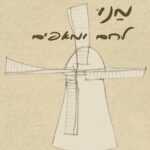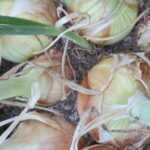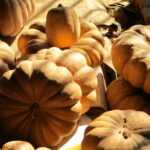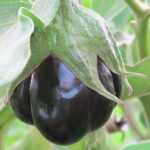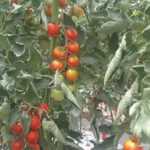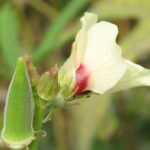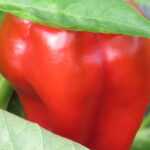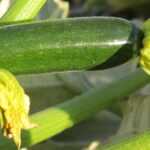Manu, our baker par excellence, is off to her summer vacation and will be taking a break from bread-baking during the month of August. Bread as usual this week. Manu will resume baking on Wednesday, August 28th, and henceforth it’s back to routine life…
__________________________________________
The month of July is nearing its end. At the end of this week we will be charging your cards for this month’s purchases.
You may view your billing history in our Internet-based order system. It’s easy. Simply click the tab “דוח הזמנות ותשלומים” where the history of your payments and purchases is clearly displayed. Please make sure the bill is correct, or let us know of any necessary revisions. At the bottom of the bill, the words סה”כ לתשלום: 0 (total due: 0) should appear. If there is any number other than zero, this means we were unable to bill your card and would appreciate your contacting us. We always have our hands full, and we depend on you to inform us. Our thanks!
_____________________________________
The Field at Rest
The three weeks between the 17th of Tammuz to Tisha B’av begin this week. Growing up on a religious kibbutz, I remember feeling the unfairness of these three weeks that land right in the middle of summer vacation, and prevent you from enjoying all its great virtues – swimming, beach, theatre and almost anything fun. The three weeks commenced with my cousin’s birthday (born on the 17th of Tamuz) and ended with my birthday (eve of Tisha B’Av). At Chubeza, too, summer pauses, and that actually makes sense in this exhausting heat. In our field this break takes place from the middle of July till mid-August.
Our “three weeks” is the period in which we hardly seed or plant. We’ve completed the planting of peppers, tomatoes, eggplant, okra, black-eyed peas, squash, sweet potatoes and the remainder of the summer crops. There is some clear logic in not planting when the heat is so oppressive. Those who are out in the field during this time of the year, even for a few hours, can easily grasp why this is not a good time to place new plants in the earth. It’s not the temperature per se, but rather the heat stress which motivates viruses, pests and other troublemakers to go out there and party. Within our enclosed nurseries, which turn into net houses in the summer (we cover them from the top with a shade net, then open the plastic walls so that the side walls are nets as well), the atmosphere is a little different, allowing us to continue seeding and planting cucumbers every month even during the summer season. The corn, too, continues to be seeded in the field weekly in order to assure the nonstop supply of this sweet gold.
We discontinued lettuce planting at the beginning of June. You probably have noticed that they, too, are challenged by summer, getting smaller and somewhat pitiful. The last lettuces will be harvested this week or next, after which we will take a 6-week break with no ripe lettuces in the field. We will miss them till they return in September…
These weeks are allowing us the opportunity to contemplate autumn and winter and to schedule our next season’s seeding and planting. This recess marks a very neat shift from summer to autumn vegetables. In the middle of August we will begin seeding green beans, and along with them the cauliflower and cabbage, beet, fennel, and celery (root and stalk). At the end of August we will begin the autumn seeding: broccoli, turnip, arugula, leek, Swiss chard and kale, after which the rest of the winter gang will join.
Summer is a season of abundance in the field, which is made possible by artificial irrigation. When farmers in the Land of Israel depended solely on natural irrigation from rain, the summer agriculture was very limited. In places bereft of natural springs, fruit trees were planted: almonds, figs, olives, grapes and pomegranates. In areas situated under springs it was possible to run water through irrigation channels, enabling vegetable as well as other annual growth. Usually, spring water was collected into storage pools, from which the water was made to flow via channels to the vegetable beds. The limited spring water was distributed very strictly between the village families using a cane (a branch of the cane plant) which measured the water level. When the water level got lower and reached the next level of cane, the path to the first family’s plots was sealed, and a path to the plots belonging to the next family in line was opened.

But springs existed only in a small part of the agricultural areas in the country. Mostly it was “dry farming” which only worked during the wet winter season. The last batch of planting was done with the last rain showers in May. The crops thrived via the rainwater stored underground until July when the earth ceased from growth, waiting fervently for autumn and its rains. Today, thanks to long-distance pipelines and to artificial irrigation, we can enjoy both the growth force of the sun as well as the ready availability of irrigation water, and the field is flourishing.
During this season, our boxes abound with members of the Solanaceae family (tomatoes, cherry tomatoes, peppers, eggplants and potatoes) and the gourds (cucumbers, fakus, melons, watermelons, butternut squash and pumpkin). The summer pods (lubia and Thai okra) and the onion family (leeks, scallions and onions), King Corn and the herbs deal well with summer under a shade net, along with the surviving greens – lettuce, Swiss chard, New Zealand spinach and scallions, also under the net.
Oddly demonstrating how disconnected we are from nature, this season is one of vacations. From the beginning of July and all through August, many of you take temporary breaks in deliveries due to vacations. Of course, this makes perfect sense, with the kids on summer break and the rare chance to go away as a family. But considering the abundance in the field, I always feel a pang of disappointment for those who are away and missing this. So for all of you who stick around, at least you can be comforted by your boxes, overflowing with succulent, gleeful vegetables and fruits.
If you’re travelling, please give us advance notice of when your vacation is planned. You can temporarily hold your order via the order system. From the tab “הזמנה קבועה”- Standing Order, look for the green-shaded line [אם ברצונך — להשעות את הזמנתך הקבוע לחצ/י כאןIf you wish to hold your Standing Order, click here] and click on the dates you’ll be gone. Make sure you set the date for the end of your break at least three days before your next desired delivery!
So for all of you vacationing, enjoy a restful and peaceful time. And to those of you who remain – Bon Appetit!
Alon, Bat Ami, Dror, Yochai and the entire Chubeza team
_______________________________________
WHAT’S IN THIS WEEK’S BOXES?
Monday: Lettuce, basil/nana mint, tomatoes, cucumbers, cherry tomatoes, eggplant, Tripoli/Provence pumpkin slice, Thai lubia/okra/zucchini, corn, sweet red peppers/ melon. Small boxes only: leeks/scallions.
Large box, in addition: New Zealand spinach/Swiss chard, onions, parsley/coriander, butternut squash.
Wednesday: Lettuce, cilantro/nana mint, tomatoes, cucumbers, cherry tomatoes, eggplant, Tripoli/Provence pumpkin slice, Thai lubia/okra, zucchini/sweet red peppers, , corn. Small boxes only: leeks/scallions.
Large box, in addition: Basil/New Zealand spinach, butternut squash/melon, onions, parsley.
And there’s more! You can add to your basket a wide, delectable range of additional products from fine small producers: flour, fruits, honey, dates, almonds, garbanzo beans, crackers, probiotic foods, dried fruits and leathers, olive oil, bakery products and goat dairy too! You can learn more about each producer on the Chubeza website. On our order system there’s a detailed listing of the products and their cost, you can make an order online now!

